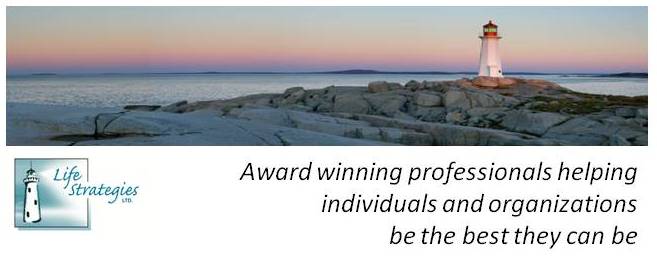 I'm currrently just finishing my contributions to a book on "Career Flow" (co-authored with Norm Amundson and Spencer Niles). Csikszentmihalyi has previously written about "Flow" as "optimal experience" - those wonderful moments when you are so throoughly engaged in an enjoyable activity that you lose all track of time as things click along perfectly for you.
I'm currrently just finishing my contributions to a book on "Career Flow" (co-authored with Norm Amundson and Spencer Niles). Csikszentmihalyi has previously written about "Flow" as "optimal experience" - those wonderful moments when you are so throoughly engaged in an enjoyable activity that you lose all track of time as things click along perfectly for you. In an entry in our own blog last month, Fiona talked about how the variety of projects she's working on contributed to flow. Krista, in her recent blog entry, spoke of the joys and challenges of working on virtual teams. As I reflect on my own work, the time races by when I'm teaching in a classroom, but minutes seem like hours when I'm grading a mountain of papers according to detailed criteria. As a consultant and manager, I love seeing "aha" moments; I hate wasting time.
Csikszentmihaly found that flow occurs more often at work than in any other life roles. He observed that balancing the degree of challenge to the level of one's skills contributes to flow (i.e., if you take on too much of a challenge for your current skill level, you'll likely be worried or anxious; however, too little challenge may result in boredom instead of flow).
I believe that it's not just about skills; rather the resources available to you (i.e., your overall capacity to get the task done) make a difference as well. Sometimes a job can be highly enjoyable until a co-worker calls in sick, leaving you with double the work with the same amount of resources. Your skills haven't changed, but it may no longer be a flow experience if you were already challenged by the work to be done. On the other hand, a job could be boring until an emergency arises - the unexpected challenge bumps you back into flow.
As you reflect on your own career, when do you find yourself in flow?
- What types of activities, under which specific circumstances, do you find particularly engaging?
- How can you create more of them at work?
- How can you adjust the activities that drag you down so that they'll be more meaningful? Less tedious?
- Why are you doing what you do?
- What difference does it make?
- Who needs the product or service you provide?
- Is the demand growing or declining?
- What other meaningful projects can you contribute to?




1 comment:
I agree with a lot of what you say in this post. I would add, however, that 'flow' can occur more often when you're looking for it. As the old adage goes, " awareness is curative"... or something like that.
If a person is intentionally looking for moments when they are in flow, they are bound to find they experience it more often.
Both authors, Timothy Gallwey (Inner Game of Work) and Marcus Buckingham (Find Your Strongest Life), write about this phenomenon.
Once you notice what circumstances or activities contribute to your experience of flow, you are in a much stronger position to recreate this experience again and again.
Thanks for making this point and giving us all an opportounity to notice what makes each of us stronger at work.
Post a Comment